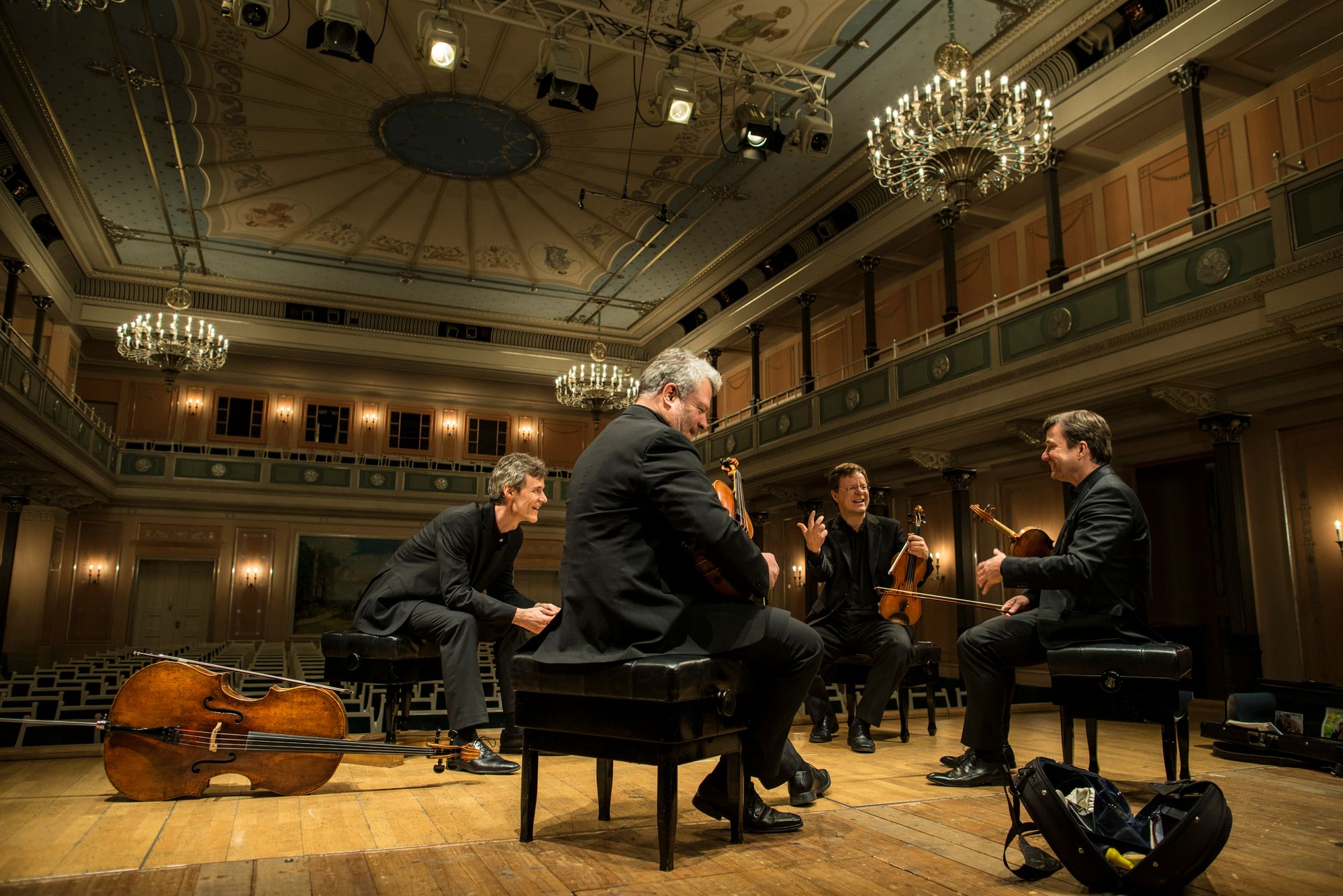Dvořák String Quartets, Volume 4
The Vogler Quartet is a major ensemble, and utterly dedicated to the music of Dvořák. A wonderful release

Dvořák's earlier string quartets to this day are under-rated. Their length seems to put people off and they have a repetition for being over-discursive. The Vogler String Quartet sets out to disprove this in a glowing, affectionate and passionate performance of Dvořák's Second Quartet in B flat major, B 17 (probably composed between 1868 and 1870).
Certainly the first movement is extended and holds few clues as to sonata form (aonly the recapitulation is obvious); it seems more allied to a sense of continual development. The Vogler Quartet obviously understands each and every contour of this 12 minutes-plus movement:
The combination of toanl warmth and textural clarity available to the Vogler Quartet is certainly audible in the hymnic opening of the Largo. There is a lot of tenderness here, too:
You might recognise the theme of the slow movement, as Dvořák used a version of it in the commposer's Sixth Symphony, but in quartet form it has a more Wagnerian, through-composed aspect to it:
Interesting how the opening of the third movement, a Scherzo, is taken from the opening of the first movement. Thematic connections across movements were all the rage in the Romantic era, and Dvořák is no exception:
That idea of cyclical use of themes is underlined by the reappearance of the first movement's theme in the finale. Also, listen to the glowing Andante opening here with the Vogler Quartet - it's absolutely mesmeric, like the dawning of a golden dawn:
The Second Quartet takes up the whole of the first disc, with a total timing of just over 49 minutes. The String Quartet No. 5 in F-Minor, B 37 ias a mere half hour and so leaves space for a Terzett for two violins and viola as filler.

The F-Minor Quartet was written in 1873. Some passages of the score were lost, however, (includeing four whole pages from the third movement) and so the performance here uses the 1923 completion by Günther Raphael published by Breitkopf und Härtel. It begins with a statement in octaves. The feel is decidedly Czech in nature (some commetators have linked the rhythmic inflections of the opening to that of the Czech language itself). The music is rooted more in the Czech lands, too, despite the odd harmonic sequence that surprises by its chronmaticism. It's also blissfully unhurried, and the Vogler Quartet fully realise how to wring teh very best from this score:
The second movement, an Andante con moto quasi allegretto, is a lighter piece, later reworked as the Op. 11 Romance for Violin and Piano (published by Simrock in 1879). Certainly the first violin gets to sing beautifully:
A brief waltz gives way to the finale, with its unsettled introduction (very inventive scoring) and a theme later on which is very miuch akin to the composer's famous Slavonic Dances. It's. a masterly piece heard here in a simialrly masterly performance. the tuning of the Vogler Quartet is one of the key elements to its success, as is its grasp of Dvořák's structures. There's a sort of passionate nostalgis here, too:
Finally, a Terzett for two violins and viola,Op. 74 (so cellist Stephan Forck got some time off while violinists Tim Vogler and Frank Reinecke and violist Stefan Fehlandt toiled away in the studio). Cast in four mocements, it is more like a set of four character pieces than the tightly organised pieces so far in this set. Lasting a total of 20 minutes (exactly, in thsi performance), this is undemanding music, cast in C major, that is artfully crafted and makes no great demands on the listener. But how one can relax and listen to the sense of pure chamber music given off by the three players. Here's the first movement:
The second movement Largetto is a song for strings, fragile and airborne, with dotted rhythms seeming to advance ever upwards, often against ululations (quasi-tremolandos) so typical of the composer:
If you had to pick music that just shouted "Dvořák," surely it would have to be the Scherzo, with its gloriously contrastive, lyrical Trio:
For a piece that is of a lighter vein, it is perhaps surprising that the final movement is a "Tema con variazioni". The theme has something of a recitative aspect to it; Dvořák's set of variations is masterly:
A wonderful releease. Too often, we just tend to listen to the fruits of a composer's late period. Here is proof positive we should look further afield. The Vogler Quartet is a major ensemble, and utterly dedicated to the music of Dvořák. Producer and Digital Editor Michael Havenstein's recording is top rank.
Post photo copyright Marco Borggreve; Twitter photo copyright Christian Kern.
